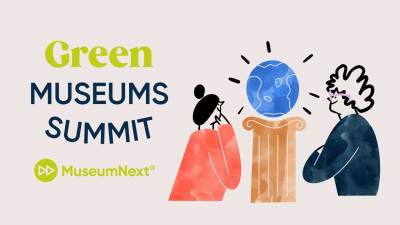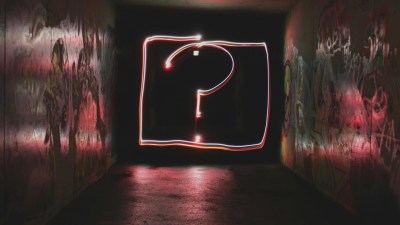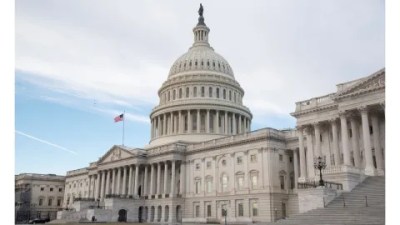
Is your museum caught up in culture wars, striving to decarbonize the future, experimenting with artificial intelligence, or combating the loneliness epidemic?
Those are the themes of this year’s TrendsWatch report, and now AAM is in search of museum people eager to share what they know, and think, about this year’s topics, as well as contributing examples of museums engaging with the trends. The call for proposals for our second annual Future of Museums Summit is now live, inviting pitches for sessions to populate the program for that virtual event, scheduled for October 29-30.
In today’s post I’m sharing the outline of that call, together with my not-so-secret hopes and dreams about what may come over the transom.
Our Themes
Culture Wars 2.0
Here’s a capsule description of the trend:
Pressure is building along fault lines that segment communities, funders, policy makers, and museums’ own staffs, boards, and volunteers. How can museums defuse this tension before it causes more damage? What choices do they face in avoiding or engaging in the current conflict, and how will these choices shape the future of museums and society?
I’m hoping to see proposals that address:
- How attacks on DEI, including legislation and criticism on social media or in the press, are affecting museums, the impact on museum operations, and tips on how to avoid or respond to these pressures.
- Practical advice on how to lead productive, civil conversations—with the community and inside museums—on contentious topics.
- How to prepare staff to anticipate and respond to organized protests.
- Emerging legislation that may impact museum content, policies, and operations.
AI Adolescence
In the past decade, artificial intelligence (AI) has leapt from the realm of science fiction and tech culture into our everyday lives. Most recently, generative AI is disrupting the work of creators, upending education, and performing key tasks in white-collar work. Some feel AI poses an existential threat to humanity—others forecast that it will quickly retreat into specific, narrow applications. What is AI, is the hype justified, and how can museums make informed judgements about this or any other emerging technology? What are the practical applications and implications for museums in the short and long term?
I’d especially like to hear from museums that have:
- Created policies, including an ethics framework, guiding their use of artificial intelligence.
- Integrated AI-powered text and image generators into their work—How is that going? What have you learned?
- Created exhibits or programs to help the public understand AI, and make informed choices for society and for their own lives.
Decarbonizing the Future
The climate crisis poses an overwhelming threat to museums, the communities museums serve, and the material legacy of all humans have accomplished. Museums’ collections constitute a vast seedbank of human civilization, creativity, and accomplishments. Protecting those seeds will entail a commitment to decarbonizing the future—replacing our dependence on fossil fuels with sustainable systems. How can museums decarbonize their own operations? How can they inspire people to take meaningful action in response to the climate crisis, even as they prepare to live in a profoundly disrupted future?
I’d like to hear from museums that are:
- Reducing their own climate impact, with actions from monitoring and controlling carbon emissions to implementing climate-friendly policies and procedures.
- Exploring what “degrowth” might look like. Are you finding ways to replace “bigger is better” with “less is more” as a metric of success?
- Adapting standards (e.g., climate control) to be more environmentally sustainable. And, has that caused any problems with loan agreements for objects or for travelling exhibits?
- Creating and sharing tools and resources to help other museums to reduce their climate impact.
Combating the Loneliness Crisis
In May 2023, Dr. Vivek Murthy released Our Epidemic of Loneliness and Isolation: The U.S. Surgeon General’s Advisory on the Healing Effects of Social Connection and Community. Such advisories are issued to address “significant health challenges that require the nation’s immediate awareness and action.” The report also offered recommendations for how cultural organizations can help combat this epidemic.
It would be great to feature the work of museums that are:
- Creating programs, and experiences, designed to foster social connection and combat loneliness.
- Partnering with other community organizations to create broader community networks of support.
- Advancing public education and awareness on the topic of loneliness and its impact on mental health.
Format
Based on feedback from last year’s attendees, we’ve established the following parameters for sessions:
- The virtual sessions are one hour long.
- Dedicated time for audience Q&A is strongly encouraged.
- Sessions should include no more than three presenters.
- Within those constraints, creativity is encouraged. Go wild! Do you want to stage a debate? (Attendees could cast virtual votes for the most persuasive argument.) Can you unleash your inner thespian with a dramatic enactment of a conversation, confrontation, or collaboration that takes explores the future of these trends?
How to prepare an awesome proposal
Here’s some inside tips on wowing the members of the Content Advisory Committee who will be reviewing the session pitches:
- Read TrendsWatch: Navigating a Volatile Future to familiarize yourself with the conference themes and consider how you might expand on this exploration of these issues.
- Identify up to three speakers for your session (But no more than three! Attendees at last year’s summit were very clear on that point in their feedback.)
- Assess your proposal against the following key questions:
- Does this build on the themes in this year’s TrendsWatch, exploring the topics more deeply, challenging the report’s conclusions, or asking provocative questions?
- Does the proposal provide examples of how museums are responding to a given trend?
- Does it provide concrete, actionable recommendations for what other museums might do in response to these challenges?
What’s next?
The call for proposals closes on July 12, at which point the session pitches will be reviewed by a subset of the Alliance’s Content Advisory Committee, who will select a total of sixteen sessions to be featured in the virtual 2024 Future of Museums Summit. Meanwhile, I’m on the hunt for our keynote and big ideas speakers—use the comment section below to let me know if you have recommendations about that!
–Yours from the future,
Elizabeth
Elizabeth Merritt, VP Strategic Foresight and Founding Director, Center for the Future of Museums
Skip over related stories to continue reading article








Love seeing this moving forward!
I would love to also see a new regular panel – a PechaKucha – where people pitch what they think the NEXT themes night be, to keep this event looking beyond the sight horizon.